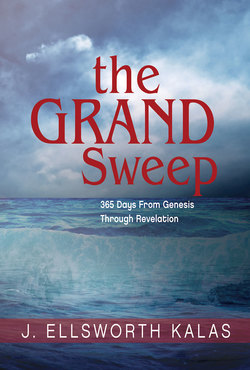Читать книгу The Grand Sweep - Large Print - J. Ellsworth Kalas - Страница 57
На сайте Литреса книга снята с продажи.
Оглавление| LEVITICUS 25–27 | Week 7, Day 5 |
If the sabbath is a gift to us, it is meant also to be a gift to nature. Every seventh year the land was to lie fallow. Whatever came of the unpruned vine or the untended field could be eaten, but there was to be a rest for the land. Here was a simple method of soil conservation long before it became a science. And here was a reminder of our obligation to nature. The land is blessed or cursed according to the quality of our stewardship. In a sense, the land is helpless beneath us; we determine its fate. But it will have the last word. If we do not treat it with care, it will get the really last word.
As we noticed earlier, seven was one of the significant numbers for the Hebrew people. After seven sevens of years, there would be a year of jubilee. “It shall be holy to you: you shall eat only what the field itself produces” (25:12). More than that, there shall be a reordering of the economy: Debts will be canceled, and those who have sold themselves or their families into slavery will be set free.
What a festival! “You shall have the trumpet sounded loud” (25:9) to announce the beginning of this year. Charles Wesley wrote a hymn around this chapter, applying it to our redemption in Christ.
“Ye who have sold for nought
your heritage above
shall have it back unbought,
the gift of Jesus’ love:
The year of jubilee is come!
The year of jubilee is come!
Return, ye ransomed sinners, home.”
PRAYER: Help me to make this year, this very year, a jubilee of glad and holy living; and help me to share it well with others. Amen.
It is often said that the Old Testament historians wrote like prophets and the prophets like historians. Find a section in today’s Scripture where the writer of Leviticus sounds like a prophet.
